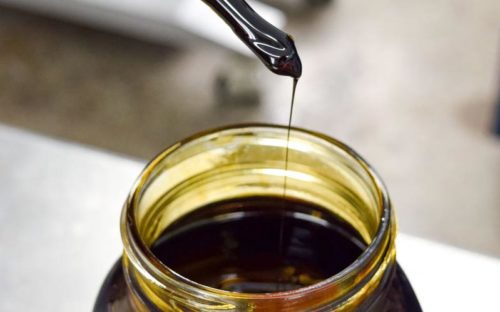Who Exactly Is H4CBD? What Exactly Is the "Future CBD"? | Voluntate.Shop
What Exactly Is H4CBD, Anyway?
Tetrahydrocannabinol, often known as hydrogenated CBD or THD, is a type of CBD that is generated in a laboratory and is considered to be semi-synthetic. It's possible that you're already familiar with additional synthetic and semi-synthetic cannabinoids that were initially generated by researchers in the middle of the 20th century.
When it comes to the CB1 receptor, H4CBD is one hundred times more potent than CBD, giving it superior anti-inflammatory properties. It is a psychotropic version of CBD that resembles HHC but lacks other components, such as a double bond. HHC is one of those components. R is the more active of the two diastereomers found in H4CBD Distillate; S is the more stable form.
After consuming it, does it make you feel high?
The answer to this question does not have an easy one. Its potency pales in comparison to that of THC. H4CBD is a mild to moderate cannabimimetic agent, which means that it does produce a noteworthy uplifting but the relaxing effect, stress-relieving euphoria without major intoxication, for users who have no experience with THC or who are sensitive to THC. This is because H4CBD is a cannabimimetic agent that falls somewhere between a cannabinoid and an endocannabinoid.
How exactly is it manufactured?
H4CBD is the name given to a kind of CBD that has been totally hydrogenated. The addition of hydrogen atoms to a particular molecule is accomplished by the execution of a specific chemical operation. This technology is utilized frequently within the food and health industries; for instance, hydrogenation of vegetable oil is required in the production of margarine.
What kind of consequences does it have?
Although it contains a "baby kick" of THC, H4 CBD does not cause intoxication. Even a third of a 1 ml cartridge of H4CBD Distillate will not be enough to impress THC junkies, as determined by our research over the weekend with Voluntate Shop on a product that is 98.5% pure and which we reviewed together. Every single person who regularly used CBD reported feeling high after only a few puffs and became stoned after consuming around one-third of a 1 milliliter cartridge. The vast majority of people who use CBD describe it as having "CBD you can feel." Because this product isn't designed to compete with THC, it's acceptable if you don't enjoy it if you take THC or HHC. It's not intended to do that.
H4 CBD has a binding affinity for the human CB1 receptor that is one hundred times higher than that of CBD (Ki = >10um), which has a value of 145nm. This places H4CBD Distillate on par with CBN in terms of its psychedelic potential; in fact, it places it in a position where it is possibly even somewhat more potent.
In addition to this, the anti-inflammatory effects of H4CBD are significantly stronger than those of CBD. In this study, macrophages were investigated for their ability to produce ROI, NO, and TNF-Alpha. The findings of the study suggest that H4 CBD possesses anti-inflammatory biomarkers that are far more effective than those of standard CBD. The psychoactivity of H4CBD Distillate is analogous to that of coffee or nicotine, however unlike those substances, it does not lead to intoxication. It contains anti-inflammatory benefits that are one hundred times stronger than CBD, and it is one hundred times more active at your CB1 receptor. Overall, CBD is better and stronger. Since CBD is the component that provides the therapeutic benefit, this cannabinoid will eventually replace CBD.

Comments
Post a Comment